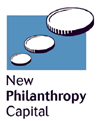Fundraising directors' confidence in income generation at record low


Fundraising directors at the UK’s top 250 charities ranked by income have expressed their lowest levels of confidence to date on their ability to generate income.
These are the results of a recent survey by Professional Fundraising magazine into fundraising trends. They were shared at today’s Scottish Institute of Fundraising’s annual conference in Dunblane by Kevin Kibble, Managing Director of Professional Fundraising magazine.
Kibble said that “the directors of the alrgest charities, who are, in the main the most experienced of those surveyed, are the ones reporting the lowest levels of optimism. One fundraising director of a nationally known disability charity, with nearly 20 years’ experience in fundraising, rated his optimism level at just 20 out of 100.”
Advertisement
Length of experience in fundraising seems to affect directors’ levels of confidence. Directors newer to the fundraising sector, or those involved in supporting statutory funded work, are far more optimistic. They bring the general level of optimism to 59 out of 100, although that is still 15 points down on this time last year.
The survey asked fundraising directors to give their views on the future of fundraising income over the short, medium and long-term across areas such as corporate fundraising, event fundraising, trust fundraising and legacies.
Respondents were asked to rate their levels of optimism or pessimism about the general climate for growing fundraising income on a scale between 0 and 100, with 0 being very pessimistic and 100 being very optimistic.
Kibble told the delegates: “Experienced fundraisers, who have seen their organisations through other economic cycles, are more aware of the threats to income levels in the short-term, and whereas individual donors do not necessarily become meaner during tight times, the same cannot be said of corporate donors or trusts.”
The most common reason cited for such a drop in optimism is uncertain economic conditions. This was followed by worries about long-term fundraising, especially from companies and legacies. Other concerns were high levels of personal debt amongst donors and an increasingly competitive marketplace for donors.




